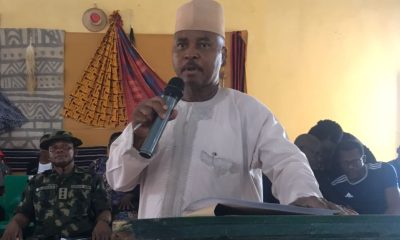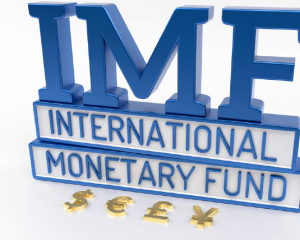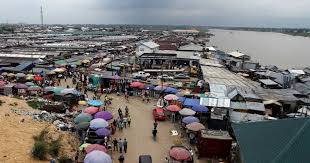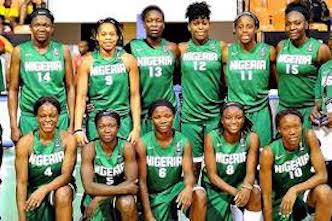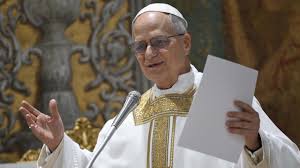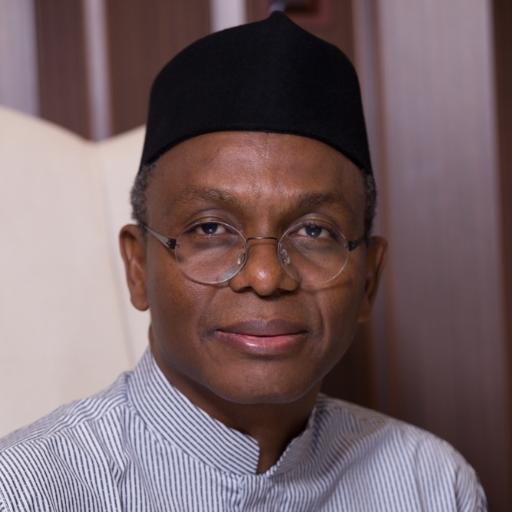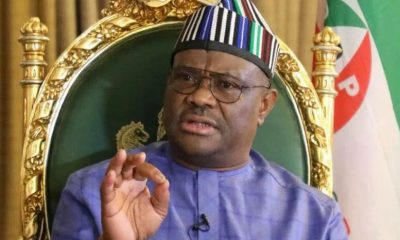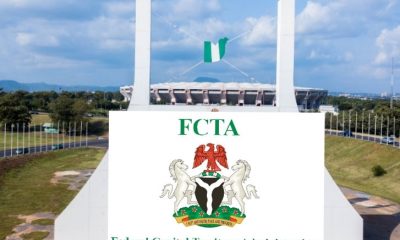Economy
Nigeria’s GDP to Shrink by 5.4% – IMF
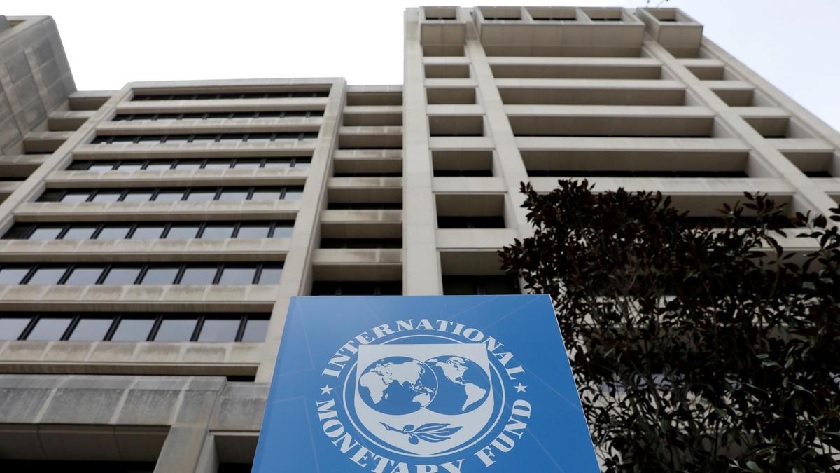
By Mathew Dadiya, Abuja
The International Monetary Fund (IMF) has cut down Nigeria’s 2020 Gross Domestic Product (GDP) growth projection, saying the economy will shrink by 5.4 per cent.
The IMF had in April 2020 projected that Nigeria’s economy would contract by 3.
4 per cent this year.The Fund announced the new forecast on Thursday in its overview of the World Economic Outlook for June, titled, ‘A crisis like no other, an uncertain recovery’, which was released on Wednesday.
According to the IMF, global growth is projected at –4.9 per cent in 2020, 1.9 percentage points below the April 2020 World Economic Outlook forecast.
“The COVID-19 pandemic has had a more negative impact on activity in the first half of 2020 than anticipated, and the recovery is projected to be more gradual than previously forecast.”
The report said for the first time, all regions were projected to experience negative growth in 2020.
It said there were, however, substantial differences across individual economies, reflecting the evolution of the pandemic and the effectiveness of containment strategies; variation in economic structure; reliance on external financial flows, including remittances; and pre-crisis growth trends.
Part of the report read, “In China, where the recovery from the sharp contraction in the first quarter is underway, growth is projected at 1.0 per cent in 2020, supported in part by policy stimulus.
“India’s economy is projected to contract by 4.5 per cent following a longer period of lockdown and slower recovery than anticipated in April.”
According to the report, in Latin America, where most countries are still struggling to contain infections, the two largest economies, Brazil and Mexico, are projected to contract by 9.1 and 10.5 per cent, respectively, in 2020.
“The disruptions due to the pandemic, as well as significantly lower disposable income for oil exporters after the dramatic fuel price decline, imply sharp recessions in Russia (–6.6 per cent), Saudi Arabia (–6.8 per cent), and Nigeria (–5.4 per cent), while South Africa’s performance (–8.0 per cent) will be severely affected by the health crisis,” it said.
Forex Market Operators Express Concern Over Naira Rates Unification
By Joy Okeke, Lagos
Nigeria’s currency market operators are likely to suffer if the plans to unify the Naira around NAFEX rate is eventually implemented by the Central Bank of Nigeria.
Unification around the NAFEX rate of about N388 is effectively a devaluation from N360/$1. However, if the CBN supports this move with liquidity that matches demand from a reviving economy, then surely the days of the black market may just be numbered.
Victor Silas an Investment Analyst at a leading Nigerian financial institution explained that the recent drawdowns, being experienced at the black market will soon be a thing of the past. He said;
“With the drawdown in the FX reserves, the odds are against the naira. As the economy reopens and the resumption of dollars sells to BDCs and attempts to meet piling FX demands, we might start to see pressures on the currency.”
Recall that the Governor of the CBN, Godwin Emefiele had on Tuesday at an Investors Conference organized by Citibank confirmed the apex bank’s decision to unify the exchange rate in order to strengthen the Naira.
Emefiele said, ”the rates they are buying the dollar from the black market are unrealistic. He said: “The CBN has always maintained that the black market is not a good determinant of the value of the naira.
“You’ll find that people who are in a hurry and do not want to procure the kind of documentation required, will sometimes rush to those markets. But we have used the period of this pandemic to prove that anybody dealing in that market is dealing in an illegal business.”
“We will continue to pursue unification around the NAFEX Market”, Emefiele said, noting that as at the end of 2019, Nigeria experienced a “relatively stable market because the NAFEX rate and rate that the Central Bank does transaction outside the NAFEX was close to themselves. At some point, the NAFEX rate may be below the Central Bank rate”
Speaking on the issue, a Forex dealer at one of the biggest banks in the country by assets, who craved anonymity said that the unification of the Naira’s exchange rates has already begun.
He said; “The unification has already commenced with the rate at which CBN sells funds for SME and payment for School fees, travelling allowance and medical payment is within the IEFX levels.
“As stated by the CBN Governor, the speculators in the Black market will lose money as soon as CBN begins selling to the BDCs and international flights starts. There’s also a need for the CBN to clamp down on speculators and round trippers in the market to stabilize rate which should not be more than c.$/N400”
This move in unifying the exchange rate system is also expected that the present converging rates estimated at N387 to $1 (I &E Window) will boost revenues for the Federal government which could see a gain of N20 on every US dollar earning in oil.
Market analysts believe the reluctance of the CBN to fund liquidity shortages at the I&E window is the reason why the black market has depreciated to about N460/$1. They claim legitimate transactions have already taken place in the parallel market especially for businesses who have obligations to meet but cannot access forex from official windows.
The naira was trading at N459 to $1 at the black market on Thursday, according to data obtained from Everdon BDC from the previous session of N455 to $1, recorded on Wednesday, a differential of N4.
Economy
Imo records over $1m from non-oil exports in 2025 – NEPC

The Nigerian Export Promotion Council (NEPC) says exporters in Imo generated a total of 1,244,095 dollars as proceeds from export trade in 2025.
The Imo Coordinator of the council, Mr Anthony Ajuruchi, disclosed this during a follow-up engagement with cocoa farmers in the state on Thursday in Owerri.
50 cocoa farmers and exporters in Imo received 30 cocoa seedlings each in 2025 as part of interventions to boost production for export.
Ajuruchi said the amount was derived from proceeds of both formal and informal export transactions carried out by the farmers within the 2025 fiscal year.
He commended the Executive Director of NEPC, Mrs Nonye Ayeni, and the management team for their support and commitment to the growth of the export market in Imo and across the country.
According to him, the council recorded notable achievements in 2025, including the organisation of capacity-building programmes on non-oil export, product packaging and labelling.
“In addition to our interventions for cashew farmers, we conducted trainings on product development and adaptation, export contracts, market penetration, product certification and export documentation procedures.
“We also trained about 600 exporters and small and medium-scale enterprises,” he said.
Ajuruchi said the engagement with the cocoa farmers was aimed at obtaining feedback and brainstorming on strategies to increase production and export volume in 2026.
One of the beneficiaries, Mrs Sophia Orji, said the cocoa seedlings she received were doing well and had started fruiting after 17 months.
Another farmer, Mrs Mary Okeke, said her cocoa plants were thriving and appealed to NEPC to extend similar support to farmers during the rainy season.
Also speaking, Mr Canice Nze, Director of Produce in the Imo Ministry of Trade, Commerce and Investment, urged the farmers to register with the ministry to enable them benefit from cooperative structures and access possible government grants. (NAN)
Economy
NCC, CBN Approve Refund Framework for Failed Airtime and Data Transactions
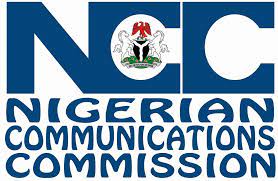
By David Torough, Abuja
In line with the consumer-focused objectives of the Nigerian Communications Commission (NCC) and the Central Bank of Nigeria (CBN), the two regulators have drawn up a framework to address consumer complaints arising from unsuccessful airtime and data transactions during network downtimes, system glitches, or human input errors.
The framework is the outcome of several months of engagements involving the NCC, the CBN, Mobile Network Operators (MNOs), Value Added Service (VAS) providers, Deposit Money Banks (DMBs), and other relevant stakeholders.
According to the NCC, these engagements were prompted by a rising incidence of failed airtime and data purchases, where subscribers were debited without receiving value and experienced delays in resolution.
“The Framework represents a unified position by both the telecommunications and financial sectors on addressing such complaints. It identifies and tackles the root causes of failed airtime and data transactions, including instances where bank accounts are debited without successful delivery of services. It also prescribes an enforceable Service Level Agreement (SLA) for MNOs and DMBs, clearly outlining the roles and responsibilities of each stakeholder in the transaction and resolution process,” a statement by Head of Public Affairs of NCC, Nnen Ukoha said.
Under the new framework, where a purchaser is debited but fails to receive value for airtime or data—whether the failure occurs at the bank level or with an NCC licensee—the purchaser is entitled to a refund within 30 seconds, except in circumstances where the transaction remains pending, of which the refund can take up to 24 hours.
The framework further mandates operators to notify consumers via SMS of the success or failure of every transaction. It also addresses erroneous recharges to ported lines, incorrect airtime or data purchases, and instances where transactions are made to the wrong phone number.
Director of Consumer Affairs at the NCC, Mrs. Freda Bruce-Bennett in a comment on the development said the framework also establishes a Central Monitoring Dashboard to be jointly hosted by the NCC and the CBN. According to her, the dashboard will enable both regulators to monitor failures, the responsible party, refunds, and track SLA breaches in real time.
“Failed top-ups rank among the top three consumer complaints, and in line with our commitment to addressing these priority issues, we were determined to resolve it within the shortest possible time,” she said.
“We are grateful to all stakeholders—particularly the Central Bank of Nigeria and its leadership—for their tireless commitment to resolving this issue and arriving at this framework, and for ensuring that consumers of telecommunications services receive full value for their purchases.
“So far, pending the approval of management of both regulators on the framework, MNOs and banks have collectively made refunds of over N10 billion to customers for failed transactions” she explained .
Mrs. Bruce-Bennett further noted that implementation of the framework is expected to commence on March 1, 2026, once the two regulators have made final approvals, and technical integration by all MNOs, VAS providers and DMBs is concluded.
Business News
Budget Office Defends Tax Reform Acts, Seeks Due Process

By Tony Obiechina, Abuja
The Budget Office of the Federation has reaffirmed the integrity of Nigeria’s newly enacted Tax Reform Acts, cautioning against what it described as governance by speculation and unverified claims following allegations of post-passage alterations.
In a statement on Wednesday, the Budget Office said it had taken note of concerns raised by the Minority Caucus of the House of Representatives, stressing that the sanctity of the law is central to constitutional democracy and not a mere procedural formality.
According to the Office, any suggestion that a law could be altered after debate, passage, authentication, and presidential assent without due process would strike at the core of the Republic and undermine citizens’ right to be governed by transparent and stable laws.
However, it warned that democratic integrity is also endangered by the careless amplification of unverified claims. “A nation cannot be governed by insinuation or sustained on circulating documents of uncertain origin,” the statement noted, adding that public confidence, once shaken by speculation, is often difficult to restore.
The Budget Office emphasized that both government and citizens share a common interest in truth, clarity, and due process, noting that public finance depends heavily on trust in the legality and clarity of fiscal laws. It welcomed the decision of the National Assembly to investigate the allegations, describing institutional inquiry, not conjecture as the appropriate response to claims of illegality.
On public access to the law, the Office agreed that Nigerians and the business community are entitled to clear and authoritative texts of all laws they are required to obey. It clarified, however, that the authenticity of legislation is determined by certified legislative records and official publication processes, not by informal or viral reproductions.
The statement also underscored the importance of separation of powers, warning that claims suggesting Nigeria is being governed by “fake laws,” if not backed by established facts, risk eroding confidence in democratic institutions.
At the same time, it stressed that legislative scrutiny should not be dismissed by the executive, noting that oversight is a constitutional duty, not an act of hostility.
From a fiscal perspective, the Budget Office said legal certainty is essential for revenue projections, macroeconomic stability, budget credibility, and investor confidence. While it is not the custodian of legislative records, it maintained that uncertainty around operative tax provisions directly affects economic planning.
To restore confidence, the Office proposed a set of measures, including the publication of verified reference texts in a single public repository, orderly access to Certified True Copies for stakeholders, clear public explanations where discrepancies are alleged, and strict alignment of all implementing regulations with authenticated legal texts.
Addressing calls for suspension of the tax reforms, the Budget Office cautioned against allowing prudence to slide into paralysis. It argued that properly implemented tax reform is necessary to reduce dependence on borrowing and inflationary financing, while easing indirect burdens on vulnerable citizens.
“Where clarification is required, it must be provided; where correction is required, it must be effected; where investigation is required, it must proceed,” the statement said, adding that governance and reform should not be stalled by unresolved conjecture.
The Office concluded by describing taxation as a democratic covenant that binds citizens and the state, insisting that compliance depends on transparency and trust. It called on political actors to protect institutions as much as positions, urging citizens and businesses to rely on verified sources and resist the spread of unauthenticated information.
The statement was signed by Tanimu Yakubu, Director-General of the Budget Office of the Federation, who reaffirmed the agency’s commitment to fiscal transparency, institutional integrity, and reforms that advance national prosperity while safeguarding citizens’ rights.







